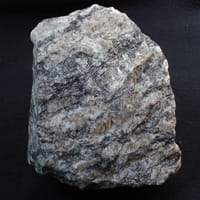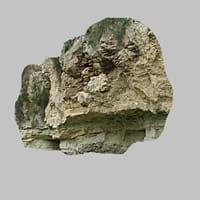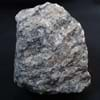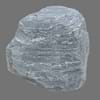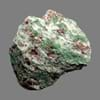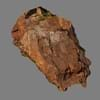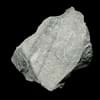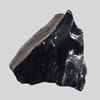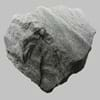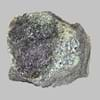Definition
Gneiss is a common and widely distributed type of rock formed by high-grade regional metamorphic processes from pre-existing formations that were originally either igneous or sedimentary rocks
A water-soluble mineral sediment resulting from concentration and crystallization by evaporation from an aqueous solution
Discoverer
Unknown
Usiglio
Etymology
From the Middle High German verb gneist (to spark; so called because the rock glitters)
From a sediment left after the evaporation
Class
Metamorphic Rocks
Sedimentary Rocks
Sub-Class
Durable Rock, Hard Rock
Durable Rock, Soft Rock
Group
Not Applicable
Not Applicable
Other Categories
Coarse Grained Rock, Medium Grained Rock, Opaque Rock
Coarse Grained Rock, Fine Grained Rock, Medium Grained Rock, Opaque Rock
Texture
Banded, Foliated, Platy
Earthy
Color
Black, Brown, Pink, Red, White
Colourless, Green, Grey, Silver, White
Durability
Durable
Durable
Appearance
Foliated
Glassy, Vesicular and Foilated
Interior Uses
Countertops, Decorative Aggregates, Flooring, Interior Decoration
Decorative Aggregates, Entryways, Flooring, Homes, Interior Decoration
Exterior Uses
As Building Stone, As Facing Stone, Garden Decoration, Paving Stone
As Building Stone, As Facing Stone, Garden Decoration, Paving Stone
Other Architectural Uses
Curbing
Curbing
Construction Industry
As Dimension Stone
As a Flux in the Production of Steel and Pig Iron, As a Sintering Agent in Steel Industry to process Iron Ore, As Dimension Stone, Cement Manufacture, for Road Aggregate, Making natural cement, Manufacture of Magnesium and Dolomite Refractories
Medical Industry
Not Yet Used
Taken as a Supplement for Calcium or Magnesium
Antiquity Uses
Artifacts
Artifacts
Commercial Uses
Cemetery Markers, Jewelry, Tombstones, Used in aquariums
Used in the manufacture of Ceramic Powder, Used in the preparation of Sulfuric Acid and Silicon Diborite
Types
Augen Gneiss, Henderson Gneiss, Lewisian Gneiss, Archean and Proterozoic Gneiss.
Not Available
Features
Generally rough to touch, Is one of the oldest rock
Generally rough to touch, Splintery, Veined
Archaeological Significance
Monuments
Used
Not Yet Used
Famous Monuments
Konark Sun Temple in India, Washington Monument, US
Not Applicable
Sculpture
Not Yet Used
Not Yet Used
Famous Sculptures
Not Applicable
Not Applicable
Pictographs
Not Used
Used
Petroglyphs
Not Used
Used
Figurines
Not Yet Used
Not Yet Used
Formation
Gneiss is a high grade metamorphic rock i.e. it has been subjected to higher temperatures and pressures than schist. It is formed by the metamorphosis of Gneiss forms from volcanic rock, shale or granitie.
Evaporite is water-soluble mineral sediment which forms from concentration and crystallization by evaporation from an aqueous solution.
Mineral Content
Biotite, Chlorite, Feldspar, Garnet, Graphite, Hornblade, Micas, Muscovite or Illite, Quartz, Quartzite, Silica, Zircon
Calcite, Cancrinite, Gypsum, Kyanite, Magnetite
Compound Content
Aluminium Oxide, NaCl, CaO, Iron(III) Oxide, FeO, Potassium Oxide, Magnesium Carbonate, MgO, MnO, Phosphorus Pentoxide, Silicon Dioxide, Titanium Dioxide
CaMg(CO3)2, CaO, Calcium Sulfate, KCl, MgO, NaCl
Types of Metamorphism
Impact Metamorphism
Burial Metamorphism, Cataclastic Metamorphism, Contact Metamorphism, Impact Metamorphism, Regional Metamorphism
Types of Weathering
Biological Weathering, Mechanical Weathering
Not Applicable
Types of Erosion
Chemical Erosion, Coastal Erosion, Sea Erosion
Not Applicable
Grain Size
Medium to Coarse Grained
Medium to Fine Coarse Grained
Fracture
Irregular
Conchoidal
Porosity
Very Less Porous
Less Porous
Luster
Dull
Subvitreous to Dull
Toughness
1.2
Not Available
Specific Gravity
2.5-2.7
2.86-2.99
Transparency
Translucent to Opaque
Translucent
Density
2.6-2.9 g/cm3
2.8-2.9 g/cm3
Specific Heat Capacity
Not Available
Resistance
Heat Resistant, Pressure Resistant, Scratch Resistant, Wear Resistant
Heat Resistant, Pressure Resistant
Deposits in Eastern Continents
Asia
China, India, Iran, Iraq, Kazakhstan, Kyrgyzstan, Mongolia, Russia
Not Available
Africa
Cameroon, Ethiopia, Ghana, Kenya, Madagascar, Morocco, Mozambique, Namibia, Nigeria, Tanzania, Togo
Not Available
Europe
Albania, Austria, Bosnia and Herzegovina, Finland, France, Georgia, Germany, Hungary, Italy, Kosovo, Monaco, Norway, Poland, Romania, Serbia, Slovakia, Slovenia, Switzerland, Ukraine, United Kingdom
United Kingdom
Others
Not Yet Found
Not Yet Found
Deposits in Western Continents
North America
Canada, Costa Rica, Cuba, Mexico, Panama, USA
USA
South America
Argentina, Bolivia, Brazil, Chile, Colombia, Ecuador, Peru, Venezuela
Colombia, Paraguay
Deposits in Oceania Continent
Australia
New South Wales, New Zealand, Queensland, Victoria
Central Australia, Western Australia
